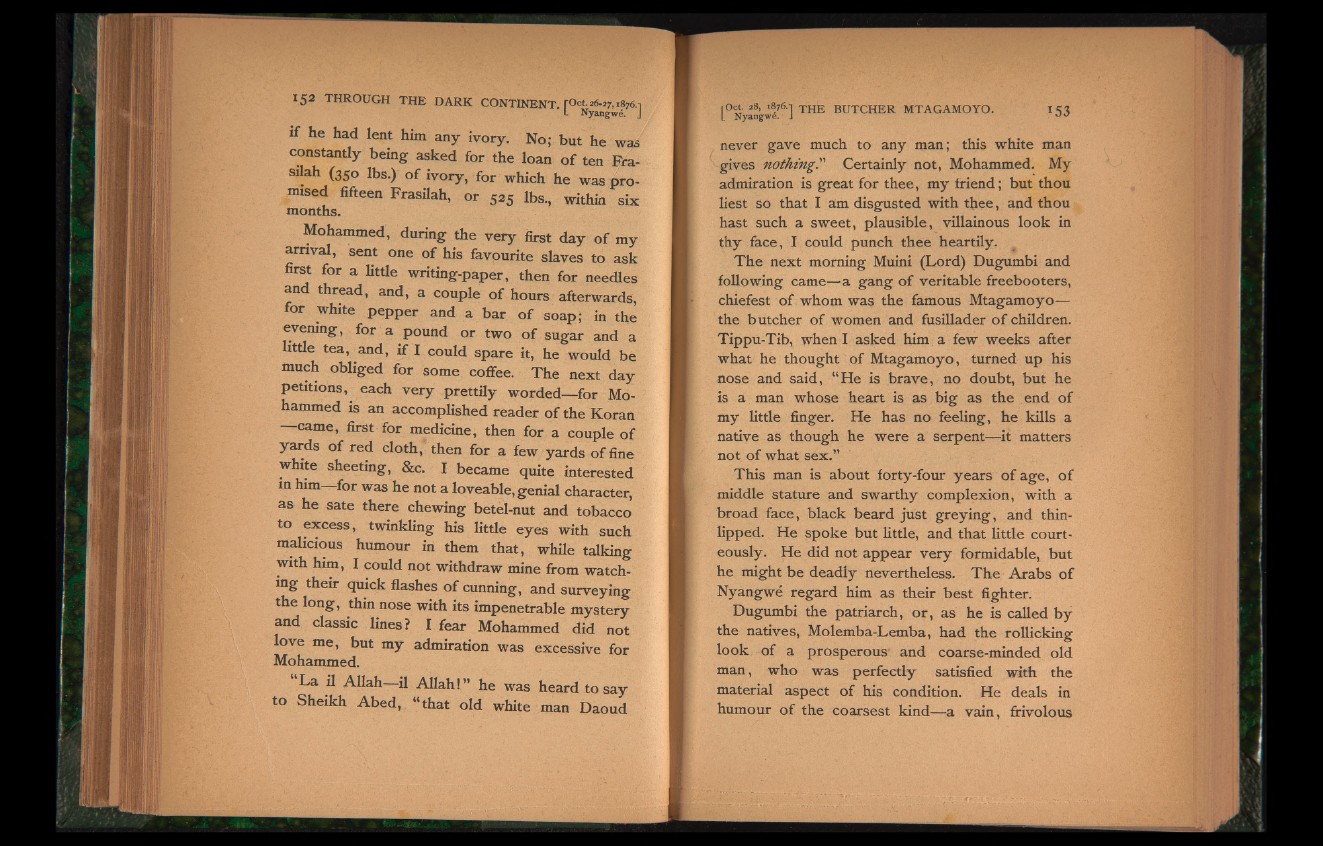
if he had lent him any ivory. No; but he was
constantly being asked for the loan of ten Ffa-
silah (350 lbs.) of ivory, for which he was Promised
fifteen Frasilah, or 525 lbs., within six
months.
Mohammed, during the very first day of my
arrival, sent one of his favourite slaves to ask
first for a little writing-paper, then for needles
and thread, and, a couple of hours afterwards,
for white pepper and a bar of soap; in the
evening, for a pound or two of sugar and a
little tea, and, if I could spare it, he would be
much obliged for some coffee. The next day
petitions, each very prettily worded— for Mohammed
is an accomplished reader of the Koran
— came, first for medicine, then for a couple of
yards of red cloth, then for a few yards of fine
white sheeting, &c. I became quite interested
m him—for was he not a loveable, genial character,
as he sate there chewing betel-nut and tobacco
to excess, twinkling his little eyes with such
malicious humour in them that, while talking
with him, I could not withdraw mine from watch-
ing their quick flashes of cunning, and surveying
the long, thin nose with its impenetrable mystery
and classic lines? I fear Mohammed did not
love me, but my admiration was excessive for
Mohammed.
La il Allah—il Allah!” he was heard to say
to Sheikh Abed, “ that old white man Daoud
never gave much to any man; this white man
gives nothing.” Certainly not, Mohammed. My
admiration is great for thee, my friend; but thou
liest so that I am disgusted with thee, and thou
hast such a sweet, plausible, villainous look in
thy face, I could punch thee heartily.
The next morning Muini (Lord) Dugumbi and
following came— a gang of veritable freebooters,
chiefest of whom was the famous Mtagamoyo—
the butcher of women and fusillader of children.
Tippu-Tib, when I asked him a few weeks after
what he thought of Mtagamoyo, turned up his
nose and said, “He is brave, no doubt, but he
is a man whose heart is as big as the end of
my little finger. He has no feeling, he kills a
native as though he were a serpent—it matters
not of what sex.”
This man is about forty-four years of age, of
middle stature and swarthy complexion, with a
broad face, black beard just greying, and thinlipped.
He spoke but little, and that little courteously.
He did not appear very formidable, but
he might be deadly nevertheless. The Arabs of
Nyangwe regard him as their best fighter.
Dugumbi the patriarch, or, as he is called by
the natives, Molemba-Lemba, had the rollicking
look of a prosperous and coarse-minded old
man, who was perfectly satisfied with the
material aspect of his condition. He deals in
humour of the coarsest kind— a vain, frivolous